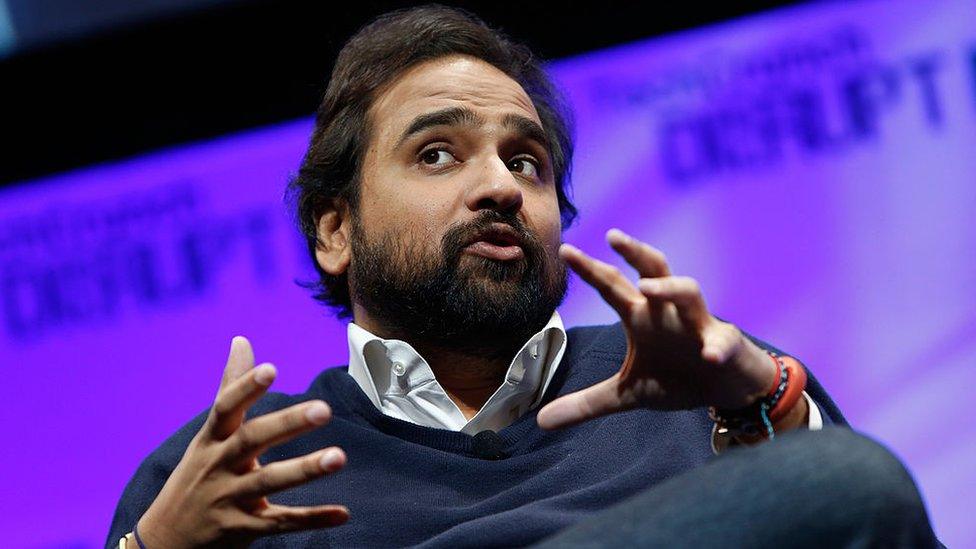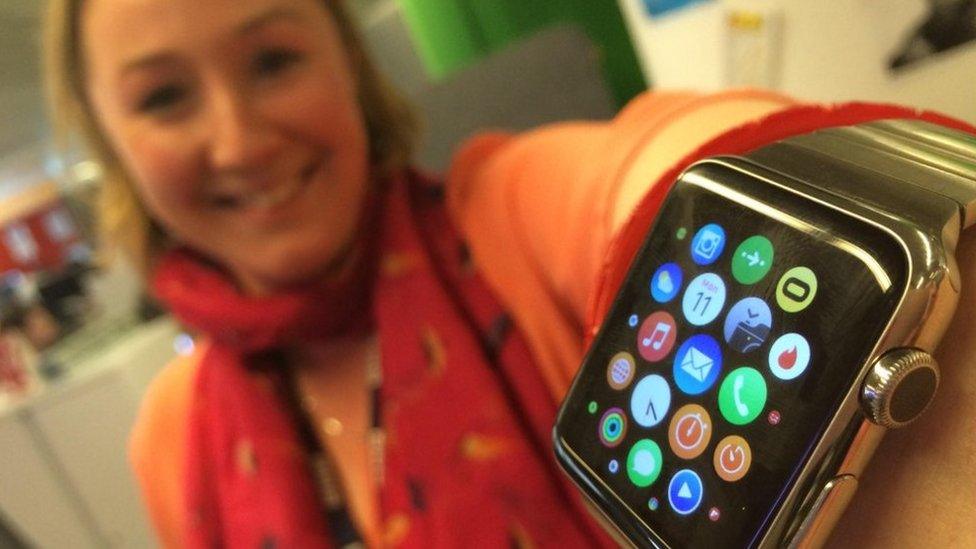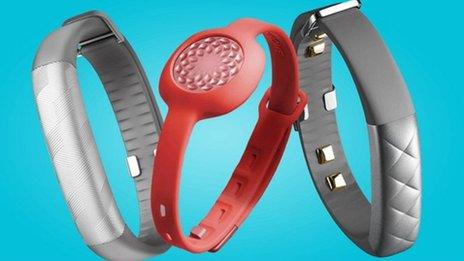Fitness tracker firm Jawbone faces liquidation
- Published

The Jawbone website is still trading
Fitness tracker firm Jawbone is facing liquidation, and chief executive Hosain Rahman is launching a new health-based tech start-up, the BBC understands.
The BBC has learned that reports of the liquidation published by news site The Information are correct.
Jawbone said it had no comment.
The firm has emailed customers, following months of silence, saying it has been "transitioning to a simpler care experience".
Some customers experiencing problems with their Jawbone device told the BBC that the company had not previously acknowledged their emails.
Jawbone has not been active on Twitter or Facebook for several months.
Its products were among the first fitness trackers on the market and it was once valued at more than $3bn (£2.3bn).
'We haven't forgotten'
Jawbone user Lisa Cope told the BBC she received the email from the company's customer support service late on Thursday.
"We sincerely apologise for the lack of communication - while you haven't heard from us for a while, please know we haven't forgotten about you," the message said.
"Over the past few months we've been transitioning to a simpler care experience. Those changes took longer than expected, but we're excited to share they're now complete and we are now ready to address your request."
The company appears to be contacting customers who had been in touch with it between October 2016 and July 2017.

Hosain Rahman co-founded the company that became Jawbone in 1998
Ms Cope had been trying to resolve a problem with her Jawbone device for several months.
She said that she was sent a "troubleshooting manual".
"They took our money for an inferior product and then, when it failed within warranty, the company ignored us all," she said.
"To be honest it has completely put me off fitness trackers. Maybe they're not a sustainable business."
In March, the firm was forced to deny "abandoning customers" after several UK device owners contacted the BBC, complaining that they were unable to reach the customer service team.
At that time a spokesman told the BBC its customer care was "days from being back online".
Tech news site TechCrunch reported in February that Jawbone - once a popular fitness tracker brand - intended to leave the consumer market, external and focus on healthcare providers.
Ian Fogg, analyst at IHS Markit, told the BBC it was not uncommon for early innovators to end up withdrawing from a market once it matured.

The Apple Watch has a popular health platform
"The early fitness trackers were very simple devices, they had a sensor that tracked movement and step count, and then the companies inferred lots of other metrics - mileage, calorie count and so on from that one very simple sensor," he said.
"What's been happening recently is that a lot of investment is needed to add more sophisticated functionality. Devices have gained screens and smartphone integration.
"The newer products are marketed as fitness trackers but in many ways they are becoming much closer to a smartwatch."
Mr Fogg added that giants such as Apple and Samsung had also changed the market by including health-tracking features in their smartwatches.
"To add things such as heart rate sensors and smartphone integration requires investment and that can often be the trigger that causes a company to ask: do we want to stay in this market?
"Often it's not possible to continue business as usual with the existing product range."
- Published7 March 2017

- Published5 March 2017
